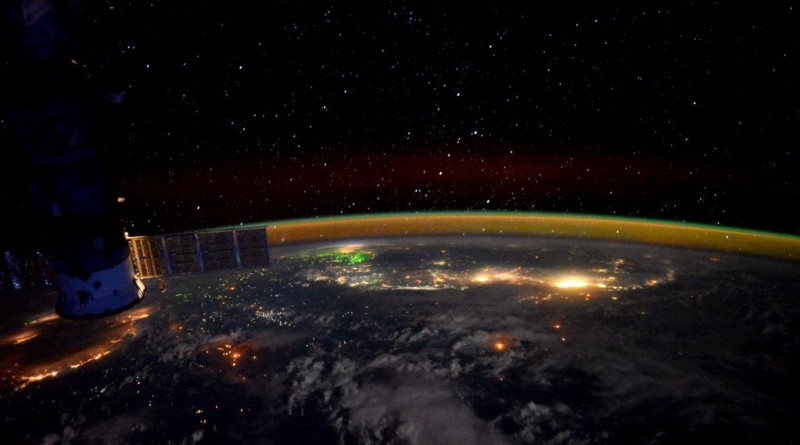ISS Operations Update – December 7, 2015

Experiments:
Fine Motor Skills [Fine Motor Skills uses a tablet touchscreen application to monitor degradation in fine motor abilities over the course of an extended exposure to microgravity. A drop in fine motor skills can lead to problems when crew members are tasked with medical treatment, repairing sensitive equipment and interacting with touch-based equipment. Tests utilized by this study include multidirectional pointing, dragging, shape tracing, and object manipulation to create a knowledgebase that will allow scientists to evaluate the risk of fine motor performance decrements due to long-duration exposure to microgravity.]
VEG-01 – Plant Water re-fill [VEGGIE or Veg-01 is a deployable plant growth unit to be set up on the Space Station to demonstrate the feasibility of a space garden. The experiment facility provides lighting and nutrient supply and is capable of supporting a variety of plant species that can be cultivated for educational outreach, fresh food and even recreation for crewmembers on long-duration missions. Thermal control is provided from ISS in-cabin systems and the carbon dioxide source is the ambient air aboard ISS.]
Body Measures – Body Marker Instrumentation, Calibration & Body Pose Photo Collection, Circumference measurements [During long duration space flight, body measurements change over time due to fluid shift in microgravity. This study attempts to better understand the magnitude and variability of these changes. This is important for future long duration flights and flights to distant destinations with respect to suit sizing, work station design, seat measurements in order to minimize risk of injury and maximise crew effectivity.]
Microbiome [The study will investigate the impact of long duration space flight on both, the human immune system and an individual’s microbiome. The microbiome is the totality of microbes that live in and on the human body at any given time and influence human physiology. Some consider the microbiome to be a “newly discovered organ” due to its importance for human physiology. In fact, there are about 10 times more microbial cells than human cells in and on the human body, but the microbiome only accounts for about 200 grams.]
Pilot-T [This experiment puts crew members through complex tasks, such as piloting a space vehicle, at various stages of a long-duration mission to assess crew member performance reliability over long mission durations.]
Vzir Experiment Operations and Tagup [Vzir (Viewfinder) uses the SKPF-U (Photo Image Coordinate Reference System) hardware, a photo image coordinate reference system using ultrasound sensors and a camera for general target views.]
Interactions Experiment [‘Vzaimodeistviye’ (Interactions) looks at psychological aspects of long duration space flight during which different cultures come together aboard a Spacecraft such as ISS and seeks to improve crew interactions aboard ISS and with teams on the ground.]
Maintenance/Systems:
Nominal Inspections/Servicing Tasks (Morning Inspection, Caution & Warning Panel Check, Sozh System Maintenance) (Russian Crew)
Microgravity Science Glovebox – slide mechanism alignment troubleshooting
MPEP Platform – Fasteners maintenance
IMAX – hardware packing and stowage for return
Cleaning ПФ1, ПФ2 Dust Filters and В1, В2, Fan Screens in MRM2
Other Activities:
Crew Departure Preparations
Soyuz TMA-17M Cargo Load for Return

